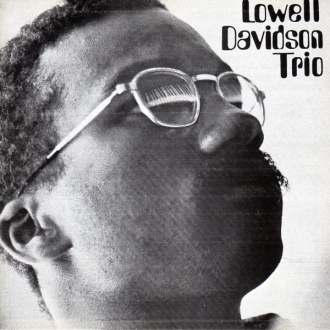This is the last article you can read this month
You can read more article this month
You can read more articles this month
Sorry your limit is up for this month
Reset on:
Please help support the Morning Star by subscribing here
Lowell Davidson Trio
Lowell Davidson Trio
(ESP)
LOWELL DAVIDSON’S one and only album, released by pioneering avant-garde label ESP in 1965, has the face of a young black man resolutely looking outwards, his steel-rimmed glasses reflecting the keys of his piano.

It is a haunting image of a musician who played the organ and led the choir in his local episcopal church as well as blowing tuba in his school band before leaving home to study biochemistry at Harvard.
Leading a life which combined scientific research with the new wave in jazz took him to New York, where he played with Ornette Coleman on his ESP album, before returning to Boston and resuming his life in science. It ended after a laboratory accident created physical and mental trauma, leading to his death in July 1990.
His sole album was recorded without any previous experience of working with his two brilliant confreres on it, bassist Gary Peacock and free-jazz groundbreaking drummer Milford Graves.
From the first notes of opening track L, there's the sense sense of a new pianism. Davidson — responsible for all compositions on the album — uses space and phrases of notes in a singular way and with a distinct percussive edge, so that with Graves’s undertow it seems as if there are two drummers at work, although Davidson’s touching of the keys can sound like an intimate yet dynamic brushwork.
Stately 1, ruefully melodic, becomes an earnest drums and piano palaver. So deeply is Graves drawn into his partner’s notes it is as if they are twins in a womb of sound — so much so, that when the almost sonically concealed Peacock, virtually left out of his bandmates’ artistry by the foibles of the sound engineer, suddenly rises up from a virtual muffled silence for a solo passage, it is as if he has appeared from below the studio floor.
The much briefer and ironically titled Dunce is angular, stop-starting and with moments of sheer improvisational beauty, with Graves’s drumming like a succession of echoes of Davidson’s forays along his keys.
The much more forceful 12 minutes of Ad Hoc are like a sound essay. It veers away and spreads into space as notes are hurled off the keys in unexpected clusters. Peacock’s fine solo is like a contribution from a sudden guest, so far on the outside does he seem.
Closer Strong Tears is the one track that signals raw emotion and, grievously, it was to hold Davidson’s last recorded sounds. This record is all we have of him, the first and only evidence of an original and fleeting talent whose brilliance was silenced all too soon.








